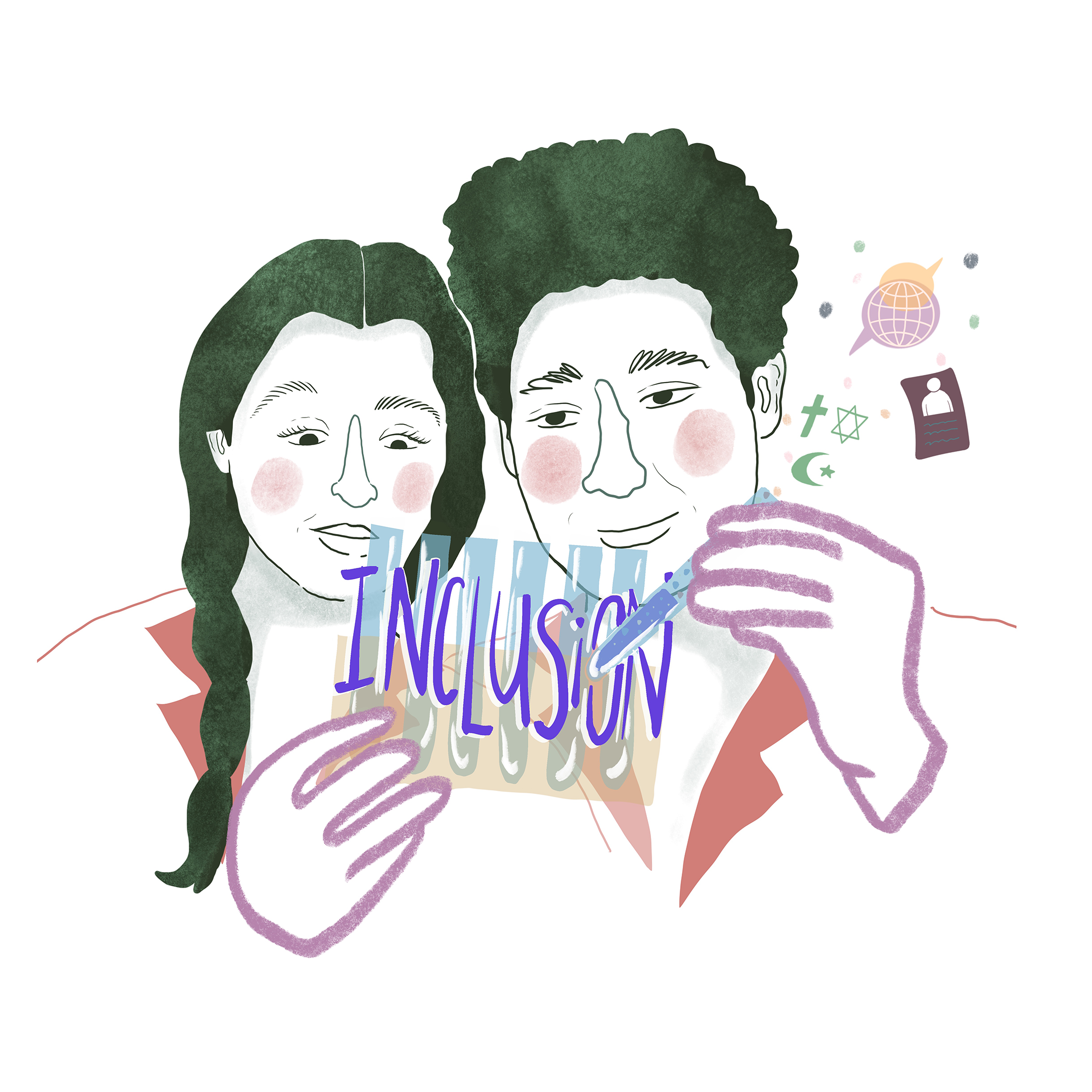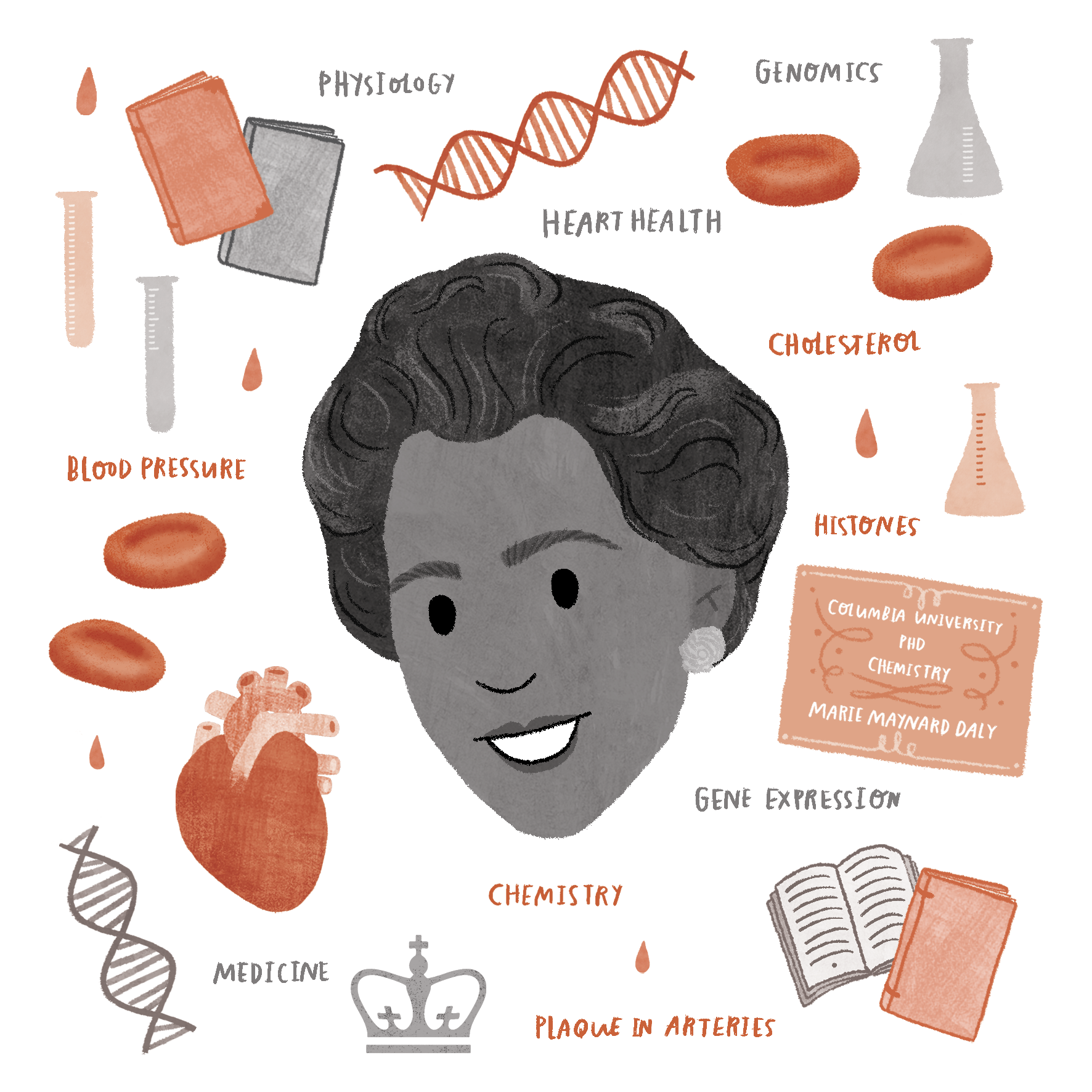The Lifeology SciComm Program has a new flashcard course to help scientists and other experts learn about the ethics of science communication! With six practical tips for being an ethical SciCommer and thought-provoking quotes from someone who considers the ethics of their science communication daily, you’ll walk away from this course understanding ethical principles of SciComm.
What do we mean by ethics of science communication? Check out this screenshot from the course.
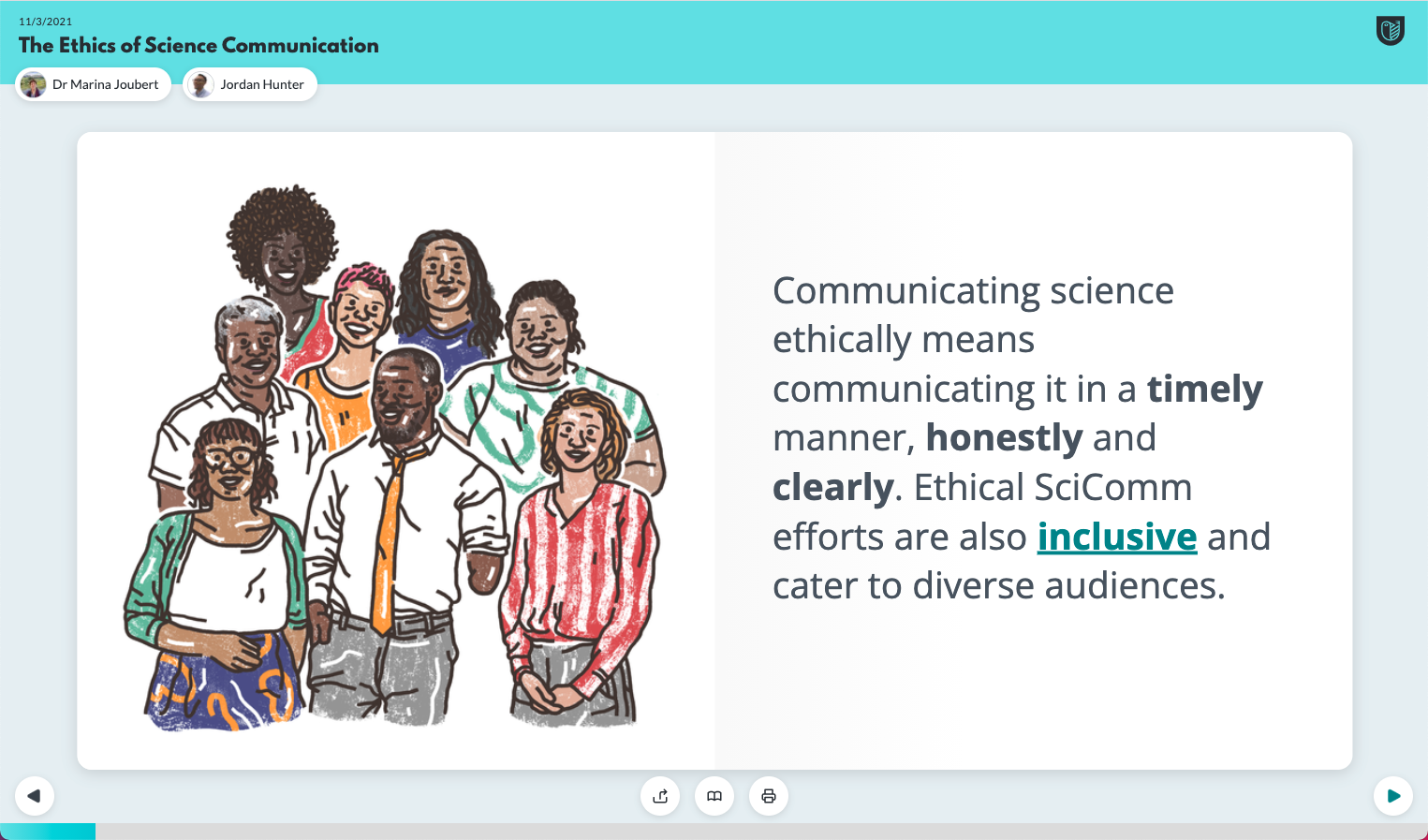
Screenshot from The Ethics of Science Communication course. It reads, “Communicating science ethically means communicating it in a timely manner, honestly, and clearly. Ethical SciComm efforts are also inclusive and cater to diverse audiences.”
Much of the fundamentals of science communication, such as choosing your audience and designing your message, beg that you take ethical considerations when doing so. So how exactly do you ensure you’re being an ethical SciCommer? Learn more in our course!
We’ve created a fun and short Lifeology “flashcard” course about the ethics of science communication! Dr. Marina Joubert wrote this course and Jordan Hunter illustrated it. The course provides six practical tips for ensuring you communicate science ethically, including being careful not to exaggerate findings or impacts and being aware of cherry-picking. Next, learn more about ethics in science communication by learning more about Kim Waddilove, a science communicator at the Africa Health Research Institute.
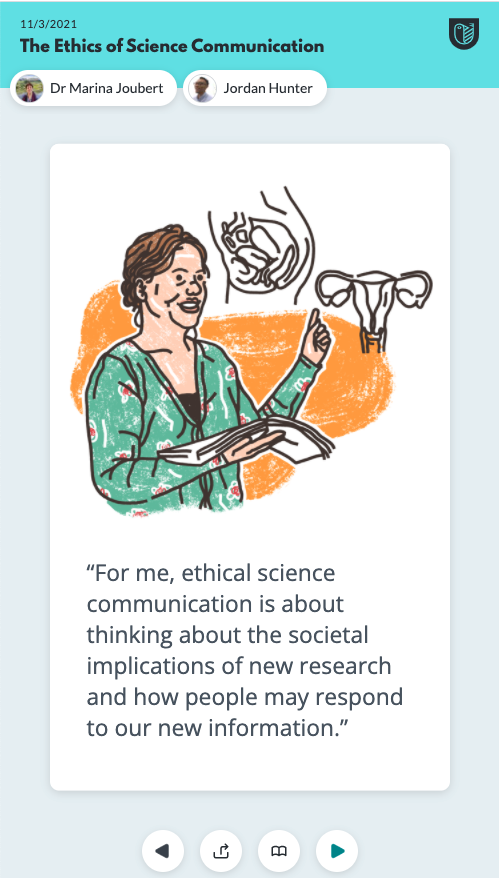
Screenshot from The Ethics of Science Communication course of a drawing of Kim Waddilove and a quote reading,“For me, ethical science communication is about thinking about the societal implications of new research and how people may respond to our new information.”
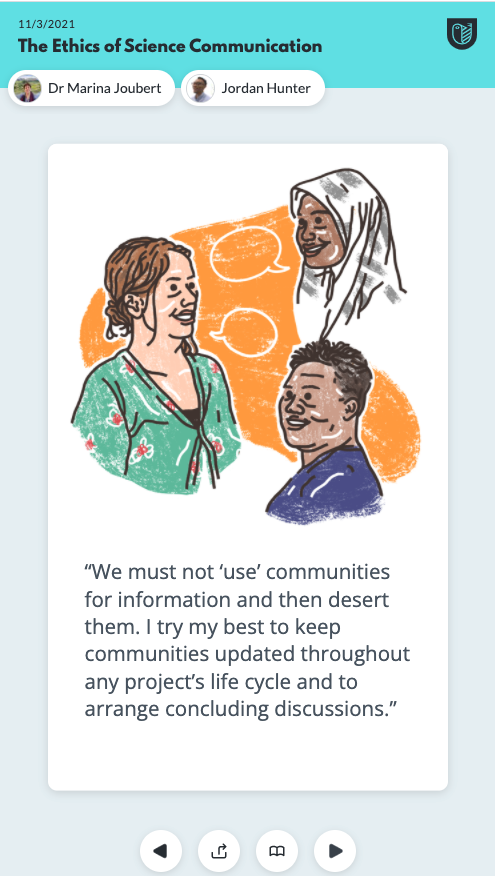
Screenshot from The Ethics of Science Communication course of a drawing of Kim Waddilove and a quote reading,“We must not ‘use’ our communities for information and then desert them. I try my best to keep communities updated throughout any project’s life cycle and to arrange concluding discussions.”
Continue reading to hear more from Dr. Marina Joubert and Kim Waddilove.
Kim Waddilove
I think I best like the slide about putting yourself in the shoes of your audience and asking what they might want to know about something rather than what you might want to tell them. I think all science communication should be motivated by a spirit of generosity towards others and by a genuine desire to better understand the world around us. Yes, it’s our job to push the science angle but we should also make an effort to understand people’s perspectives – listen closely, do a bit of research around ethics and values, and balance your communications between your agenda and people’s views.
Dr. Marina Joubert
Ethical conduct in research is a hot topic in universities, as it should be. However, we don’t often reflect on the ethics of communicating research, and I hope this flashcard course will stimulate some debate on this topic.
Recently, the issues related to diversity, equity and inclusivity – in terms of the content of our communication and the audiences we engage with – have been getting significant attention. These are crucial aspects of ethical science communication.
However, ethics is also about issues related to science PR, and avoiding hype and exaggeration when we share science. I believe science communicators can play a crucial role here, by providing evidence that more nuanced communication and acknowledging uncertainty in science actually helps to build public trust. That is why we provided links to published research (for example building trust in science communication) in this course. I hope that this flashcard course will help to connect practitioners with science communication research, and contribute towards the idea of evidence-based science communication practice.
What are you waiting for? Launch the course now and learn more about the ethics of science communication.
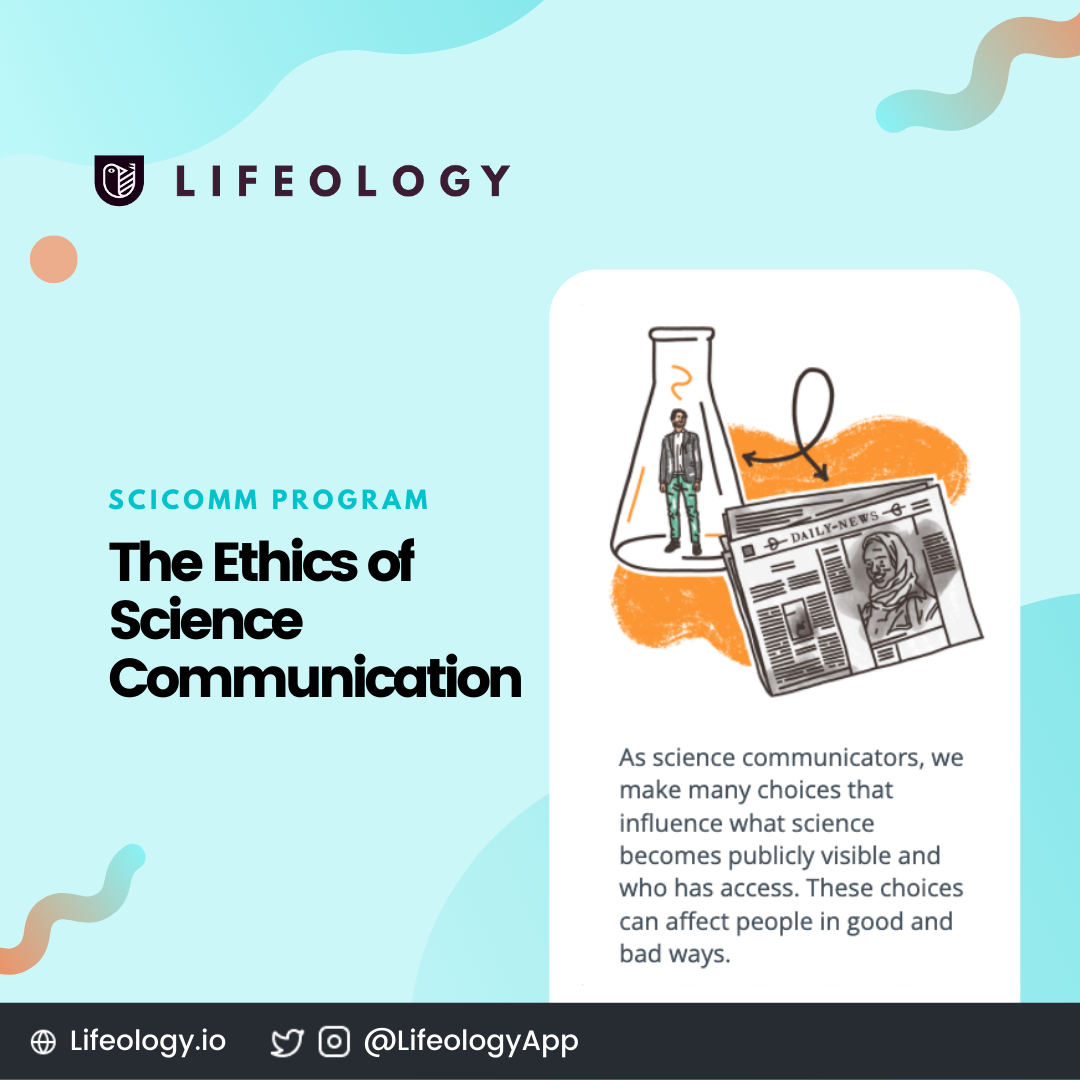
You can find more SciComm courses here. Sign up to formally participate in the program—it’s FREE! When you sign up, you’ll be added to a newsletter and private channel in the Lifeology Slack Workspace where you can ask questions, get alerts about new courses and participate in course-related activity and content challenges! As part of the program, when you complete the activities at the end of the courses, you’ll receive Lifeology Science Communicator Certificates.
